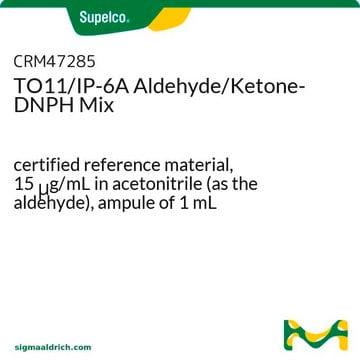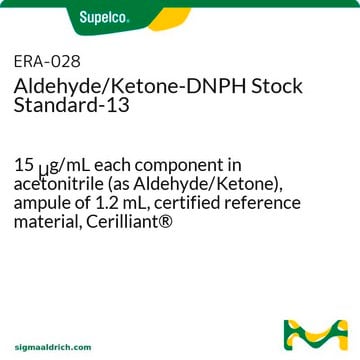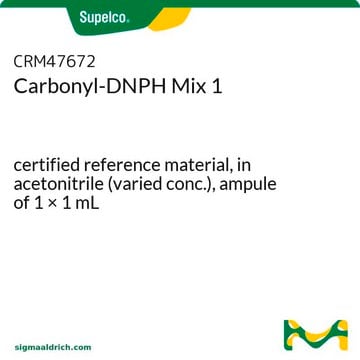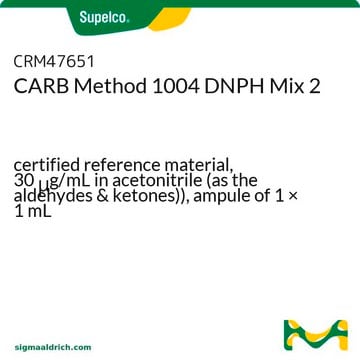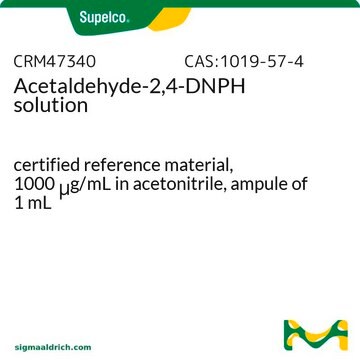CRM4M7285
TO11/IP-6A Aldehyde/Ketone-DNPH Mix
certified reference material, 15 μg/mL each component in acetonitrile (as the aldehyde or ketone), ampule of 3 × 1 mL
About This Item
Recommended Products
grade
certified reference material
TraceCERT®
Quality Level
product line
TraceCERT®
CofA
current certificate can be downloaded
packaging
ampule of 3 × 1 mL
concentration
15 μg/mL each component in acetonitrile (as the aldehyde or ketone)
technique(s)
HPLC: suitable
gas chromatography (GC): suitable
application(s)
environmental
format
multi-component solution
storage temp.
2-8°C
Looking for similar products? Visit Product Comparison Guide
Application
- For the determination of air-dispersed formaldehyde and carbonyl compounds (CCs) as vapors by denuder-filter sampling and gas chromatography method of analysis.
- To investigate the impact of NO, NO2 and CO in air samples on the capture and retention of formaldehyde and acetaldehyde with the DNPH-cartridge. The reaction products and chromatographic interferences are identified using chromatography techniques.
Other Notes
Legal Information
Not finding the right product?
Try our Product Selector Tool.
Analyte
Signal Word
Danger
Hazard Statements
Precautionary Statements
Hazard Classifications
Acute Tox. 4 Dermal - Acute Tox. 4 Inhalation - Acute Tox. 4 Oral - Eye Irrit. 2 - Flam. Liq. 2
Storage Class Code
3 - Flammable liquids
WGK
WGK 2
Flash Point(F)
35.6 °F - closed cup
Flash Point(C)
2.0 °C - closed cup
Choose from one of the most recent versions:
Certificates of Analysis (COA)
Don't see the Right Version?
If you require a particular version, you can look up a specific certificate by the Lot or Batch number.
Already Own This Product?
Find documentation for the products that you have recently purchased in the Document Library.
Customers Also Viewed
Our team of scientists has experience in all areas of research including Life Science, Material Science, Chemical Synthesis, Chromatography, Analytical and many others.
Contact Technical Service